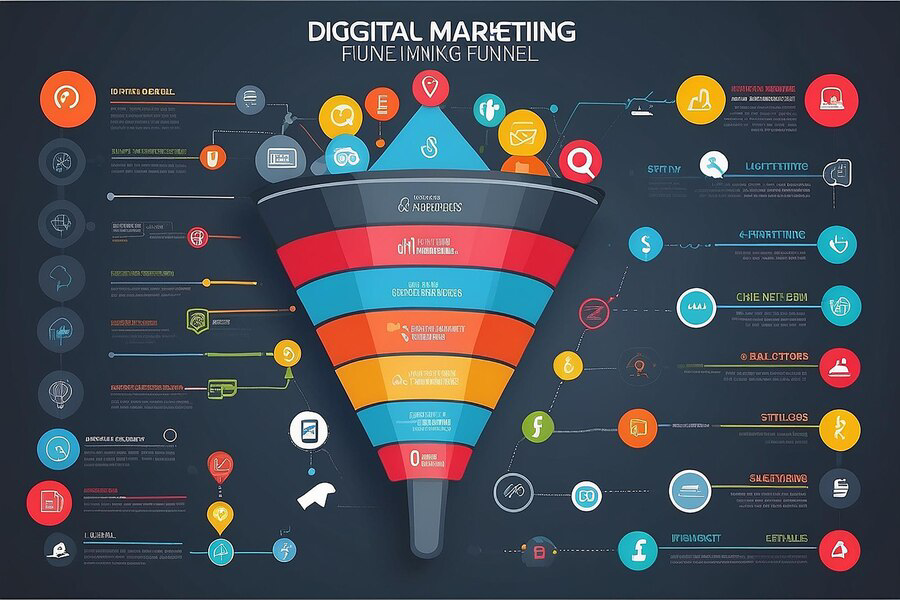Streamlining Website Dev with CMS
In the dynamic landscape of digital presence,
Content Management Systems (CMS) serve as the backbone for streamlined website development, offering a robust framework to efficiently manage, create, and publish digital content. These systems have revolutionized the way websites are built and maintained, providing a user-friendly interface that empowers both developers and non-technical users alike. From blogs to e-commerce platforms, CMS platforms like WordPress, Drupal, and Joomla have become integral tools for businesses and individuals seeking to establish an online presence without the need for extensive coding knowledge. By abstracting complexities associated with web development, CMS platforms enable rapid deployment of websites, fostering agility and adaptability in an ever-evolving digital landscape. Moreover, CMS solutions offer a plethora of customizable templates, plugins, and extensions, allowing users to tailor their websites to specific needs and preferences with ease. As businesses increasingly recognize the importance of a compelling online presence, the role of CMS in streamlining
website development continues to grow, driving innovation and efficiency in the digital realm.
Understanding Content Management Systems (CMS): An Overview
Content Management Systems (CMS) are robust platforms designed to simplify the creation,
management, and publication of digital content, including text, images, videos, and more. They serve as the backbone of websites, providing users with intuitive interfaces to organize, edit, and update content without requiring extensive technical expertise. CMS platforms typically offer a variety of features such as content editing, user management, version control, and template customization. Popular examples include WordPress, Joomla, Drupal, and Wix. By centralizing content management tasks and providing easy-to-use tools, CMS enables individuals and organizations to establish and maintain professional-looking websites efficiently.

Advantages of CMS: Efficiency and Effectiveness in Website Development
CMS offers numerous advantages that contribute to the efficiency and effectiveness of website development. One of the primary benefits is its user-friendly interface, which empowers users with varying levels of technical proficiency to create and manage content without the need for coding knowledge. Additionally, CMS platforms often come with a wide range of pre-designed templates and plugins that streamline the development process, allowing for rapid deployment of websites. Moreover, CMS facilitates collaborative work environments, enabling multiple users to contribute and edit content simultaneously while maintaining version control. Furthermore, CMS platforms typically incorporate SEO-friendly features, helping websites rank higher in search engine results and attract more organic traffic. Overall, CMS significantly reduces the time, resources, and technical barriers associated with website development, making it an invaluable tool for individuals and businesses alike.
Choosing the Right CMS: Factors to Consider
Selecting the appropriate CMS is crucial for achieving your website development goals effectively. Several factors should be considered when making this decision, including your technical expertise, scalability requirements, customization needs, budget constraints, and the specific features essential to your website. First and foremost, assess your familiarity with CMS platforms and determine whether you require a user-friendly interface or are comfortable with more advanced functionalities. Next, evaluate the scalability of the CMS to ensure it can accommodate your website's growth over time. Consider the level of customization offered by the platform and whether it aligns with your design preferences and branding requirements. Additionally, factor in the cost of licensing, hosting, and ongoing maintenance to determine the overall affordability of the CMS solution. Lastly, research the available features and extensions to ensure the chosen CMS can support the unique needs of your website, such as e-commerce capabilities, multilingual support, or integration with third-party services. By carefully weighing these factors, you can make an informed decision and select the right CMS that aligns with your objectives.
Customization Capabilities: Tailoring Your Website with CMS
One of the key advantages of Content Management Systems (CMS) is their robust customization capabilities, allowing users to tailor their websites to meet specific design preferences, functionality requirements, and branding guidelines. CMS platforms typically offer a wide range of themes, templates, and plugins that can be easily customized and extended to create unique and visually appealing websites. Users can modify the layout, color scheme, typography, and other design elements to reflect their brand identity and enhance user experience. Additionally, CMS platforms provide flexibility in adding custom features and functionalities through plugins and extensions, eliminating the need for extensive coding or development work. Furthermore, CMS allows for content personalization, enabling users to deliver targeted messages and experiences to different audience segments based on their preferences and behaviors. By leveraging the customization capabilities of CMS, businesses can create engaging and immersive websites that effectively communicate their brand message and drive user engagement.
Streamlining Workflow: How CMS Enhances Website Development Processes
Content Management Systems (CMS) play a pivotal role in streamlining website development processes by providing a centralized platform for collaboration, content creation, and publishing. With CMS, multiple users can seamlessly collaborate on website projects, each with designated roles and permissions, ensuring efficient workflow management. CMS platforms offer intuitive interfaces and content editing tools that empower users to create, edit, and publish content without relying on technical expertise or extensive training. Moreover, CMS automates routine tasks such as content scheduling, version control, and content optimization, freeing up time for developers and content creators to focus on more strategic initiatives. Additionally, CMS simplifies the integration of third-party services and applications, enabling seamless connectivity and functionality enhancements. By standardizing processes and providing workflow automation tools, CMS enhances productivity, reduces time-to-market, and ensures consistency across website development projects. Overall, CMS streamlines workflow management and fosters collaboration, enabling teams to deliver high-quality websites efficiently and effectively.

SEO-Friendly CMS Features: Optimizing Content for Visibility
Search engine optimization (SEO) is essential for improving the visibility of your website and driving organic traffic. Content Management Systems (CMS) that offer SEO-friendly features can significantly enhance your website's ranking on search engine results pages (SERPs). Here are some key features to look for in an SEO-friendly CMS:
- Intuitive URL Structures: Ensure your CMS allows for customizable and clean URLs that include relevant keywords to improve search engine indexing.
- Metadata Optimization: Look for built-in tools that enable easy optimization of meta titles, descriptions, and tags for each page and post.
- Mobile Responsiveness: Choose a CMS that automatically generates mobile-friendly versions of your website, as mobile optimization is crucial for SEO.
- Image Optimization: Opt for a CMS with features for optimizing image file names, alt tags, and sizes to improve page loading speed and search engine visibility.
- XML Sitemap Generation: Verify that your CMS can generate XML sitemaps automatically, making it easier for search engines to crawl and index your website.
By selecting a CMS with SEO-friendly features, you can optimize your website's content for better visibility in search engine results, ultimately attracting more organic traffic and improving your online presence.
Future Trends in CMS: Innovations Shaping the Future of Website Development
The field of Content Management Systems (CMS) is constantly evolving, driven by technological advancements and changing user demands. Keeping abreast of emerging trends is crucial for staying ahead in website development. Here are some future trends in CMS that are shaping the landscape of website development:
- Headless CMS: The rise of headless CMS architectures decouples content from presentation, offering greater flexibility and scalability for building omnichannel experiences.
- Artificial Intelligence (AI) Integration: AI-powered CMS platforms are becoming increasingly prevalent, leveraging machine learning algorithms to personalize content, automate workflows, and enhance user experiences.
- Voice Search Optimization: With the growing popularity of voice search, CMS platforms are incorporating features to optimize content for voice queries, such as natural language processing and voice-enabled navigation.
- Progressive Web Apps (PWAs): CMS platforms are embracing PWAs to deliver fast, reliable, and engaging web experiences that mimic native mobile apps, offering offline access and push notifications.
- Augmented Reality (AR) and Virtual Reality (VR) Integration: As AR and VR technologies continue to mature, CMS platforms are exploring ways to incorporate immersive content experiences, such as 3D product visualization and virtual tours.
By embracing these future trends in CMS, website developers can harness the power of emerging technologies to create innovative and engaging digital experiences that meet the evolving needs of users.
Conclusion
Embracing Content Management Systems (CMS) is pivotal for streamlining website development processes. From efficient content creation to seamless updates, CMS platforms offer a robust framework that empowers businesses to build and manage their online presence effectively. By leveraging the user-friendly interfaces and customizable features of CMS, organizations can expedite their website development timelines and enhance overall user experience. The flexibility and scalability of CMS solutions also ensure adaptability to evolving business needs and technological advancements, making them indispensable tools in the digital age.
For further inquiries or to embark on your journey towards streamlined website development, don't hesitate to reach out to Ideation Digital Marketing. Located in Charleston, WV, our expert team is dedicated to providing tailored CMS solutions that elevate your online presence. Contact us today at (304) 814-2445 to learn more about how we can assist you in maximizing the potential of your digital platform.












